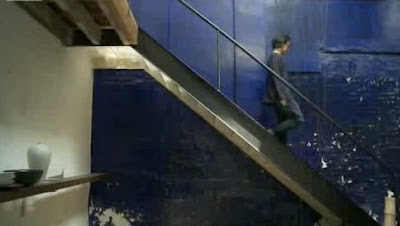
The always great BLDG BLOG has a series of posts on hidden rooms, including
this one, discussing
Allen Fea's book. Nice set of comments as well. Apparently, the dream of finding new rooms in one's house is a common one, particularly among city dwellers. Likewise, the theosophists used to say that this was one of the first signs that you were doing some astral travel while lucid dreaming, and that the extra spaces were the result of the psychic space being a mirror of the physical or vice versa.
I used to have dreams about finding "extra" rooms behind the registers, and "extra" roads, usually dirt roads, lined by trees and elaborate, looming houses which appeared between existing hedgerows near my house.
This was probabaly touched off in part due to the fact that there was an entire extra row of lots that ran behind one of my friends' houses, one of which contained the single spookiest house in the neighborhood. Made of nasty, rotted-looking brown wood, abandoned and half ruined, surounded by burnt out grass and weeds. We could
just see into the property whilst perched in a crabapple tree at the edge of my friend's back yard, with the partial obscurity offered by the branches adding to the uncanny feeling, as if we were stalking the house through the savannah. We used to take turns telling each other hair-raising stories about the place (axe murderers, Amityville-style demonic possession, crazed drug-fiend cultists and bloodthirsty ghosts made star appearances). The object was to make someone completely freak out and lose their nerve for staring at the place.
After a few years, someone knocked the thing down and landscaped it into a backyard garden with azaleas and a water feature, completely oblivious to the fact that they were planting their ground cover
on top of a gateway to HELL!!!I think every neighborhood should be furnished with a derelict building vibrating with the uncanny for the purpose of edification and atmospheric enhancement for the young people.









































